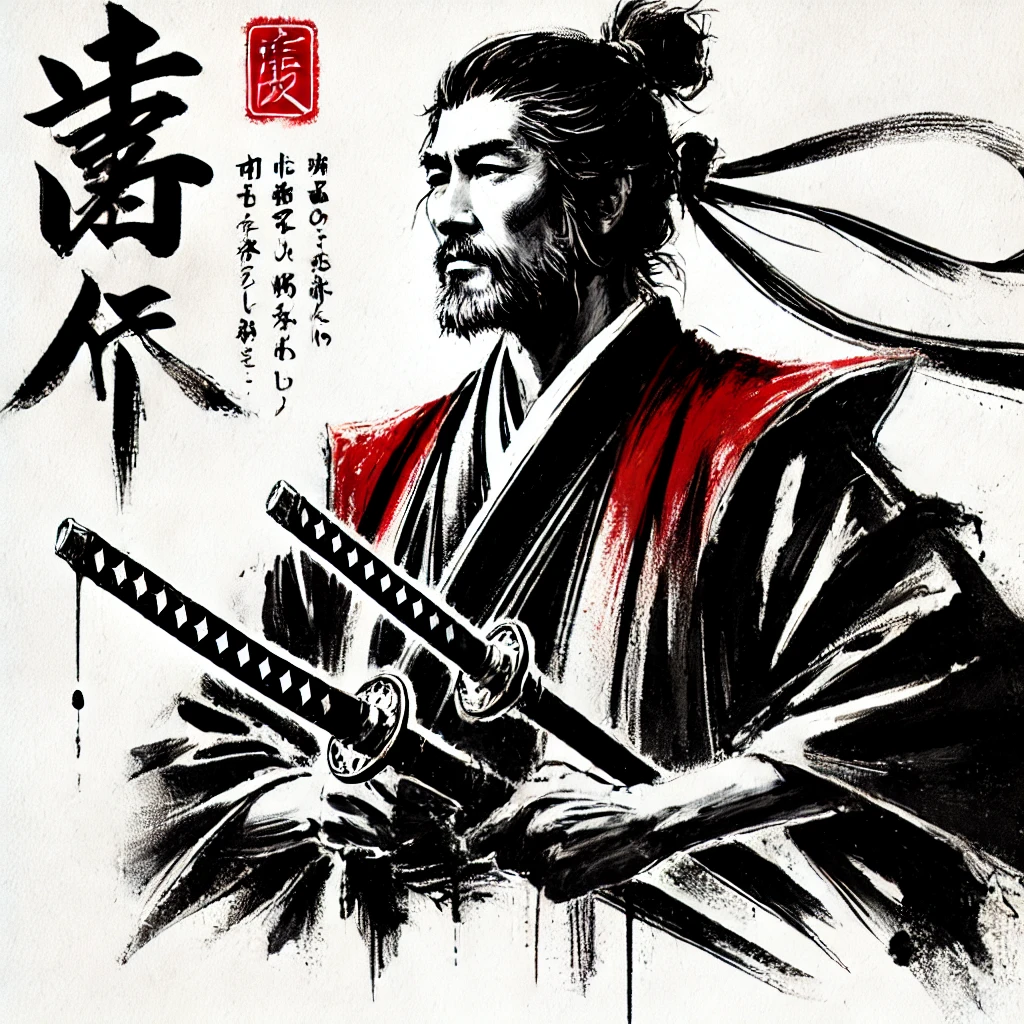Dokkōdō, meaning “The Way of Walking Alone,” is a short philosophical work written by the legendary Japanese swordsman Miyamoto Musashi in 1645, just a week before his death. Comprising 21 precepts, Dokkōdō reflects Musashi’s personal code of honor, simplicity, and detachment from worldly desire. Below is a breakdown of its core teachings, organized into five themes, with a quote from Musashi under each section.
1. Detachment and Minimalism
Musashi emphasizes the importance of releasing attachment to material goods, pleasure, and personal desires. He advocates a simple, uncluttered life focused on clarity, discipline, and internal strength.
“Do not pursue the taste of good food. Do not possess any unnecessary goods.”
~ Miyamoto Musashi
These precepts reflect Zen influence, encouraging a life free of excess in order to sharpen one’s mind and spirit.
2. Acceptance of Impermanence
Musashi urges readers to accept the transitory nature of life. He warns against sadness, obsession, or fear, and instead promotes facing reality without illusion or complaint.
“Do not regret what you have done. Accept everything just the way it is.”
~ Miyamoto Musashi
This stoic approach helps develop emotional resilience and inner peace, aligning with both samurai ethics and Buddhist philosophy.
3. Mastery of Self
Self-discipline, self-reliance, and personal mastery are central to Dokkōdō. Musashi teaches that one should not depend on others for validation, nor waver in commitment to one’s path.
“Respect Buddha and the gods without counting on their help.”
~ Miyamoto Musashi
This reflects his belief that true strength comes from within, forged through solitude, struggle, and inner focus.
4. Steadiness in All Things
Musashi advises not to be swayed by feelings of joy, fear, love, or sorrow. He encourages unwavering equanimity and warns against becoming too involved in worldly affairs or emotions.
“Be indifferent to where you live. Do not let yourself be guided by the feeling of lust or love.”
~ Miyamoto Musashi
This sense of emotional neutrality is tied to the samurai ideal of unwavering presence under pressure.
5. Commitment to the Way
At the heart of Dokkōdō is the idea of living with purpose and pursuing one’s path—whether that be martial, spiritual, or artistic—without compromise. The journey is lifelong, and one must walk it alone.
“Never stray from the Way.”
~ Miyamoto Musashi
Musashi’s own life, filled with duels, wandering, and spiritual reflection, is the embodiment of this principle.
Conclusion: A Warrior’s Wisdom for All Times
Dokkōdō is a concise and profound guide to inner freedom, strength, and purpose. Though rooted in samurai tradition, its principles apply universally to those seeking a life of integrity, simplicity, and self-mastery. It is not just about walking alone—it is about walking with clarity, courage, and unwavering resolve.


Leave a Reply
You must be logged in to post a comment.